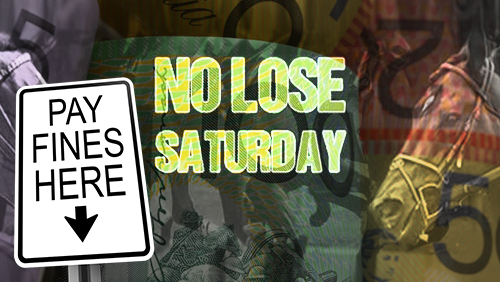A promotional campaign that Topbetta launched in 2014 is now causing trouble for the Australian sports betting company.
 The NSW-based gambling company was ordered on Tuesday to pay more than AUS$15,000 in fines after pleading guilty on three counts of publishing gambling advertising on its website for its “No lose Saturday” campaign that ran between October 2014 and May 2015, according to Liquor and Gaming NSW.
The NSW-based gambling company was ordered on Tuesday to pay more than AUS$15,000 in fines after pleading guilty on three counts of publishing gambling advertising on its website for its “No lose Saturday” campaign that ran between October 2014 and May 2015, according to Liquor and Gaming NSW.
The gambling regulator said Topbetta’s promotions offered NSW residents “a refund on any losing bet up to a maximum of $100 for all wagers placed on certain horsing events.” The perk was available to new members who joined and deposited money during the promotional period.
According to Liquor and Gaming, the advertising went against NSW’s Betting and Racing Regulation 2012, which forbids licensed gambling operators from publishing any promotion that “offers NSW residents any inducement to participate in gambling activity or open a betting account.”
“These measures are in place in NSW to protect people from potential problem gambling. Advertising inducements can lure people into gambling including those who may not be in a position to afford it or those who are susceptible to problem gambling. Wagering operators that offer inducements to gamble on NSW residents will face regulatory action,” said Anthony Keon, Liquor and Gaming NSW director of compliance and enforcement, in a statement.
Topbetta joined other sports betting companies operating in NSW that were also convicted for coming up with advertisements that induced locals into gambling, including Unibet and Bet365, Ladbrokes, Sportsbetting.co.au Pty Limited and ClassicBet Pty Ltd.
But blanket marketing on television and over the Internet could soon be a thing of the past, thanks to a new trend, which experts referred to as “matey” communication.
The current trend is to have a staff member call frequent punters and encourage them to top up their accounts, which experts said is not only aggressive, but also a creative way of “direct marketing.”
“We have seen a real increase in sports betting marketing—both on television and online—and now we are seeing a greater creativity in reaching the customers,” Dr. Sally Gainsbury of Southern Cross University’s Gambling Education and Research Centre said, according to an ABC.net.au report.
Most online betting services are registered and regulated in the Northern Territory, but the country still lacks an overarching regulation that will encompass the whole country. The outdated Interactive Gambling was written in 2001, when smartphones weren’t widely available yet.
The government, however, has recognized that technology was already trumping the law, so it tasked former NSW Premier Barry O’Farrell to review the IGA, but his findings won’t be made public until March.